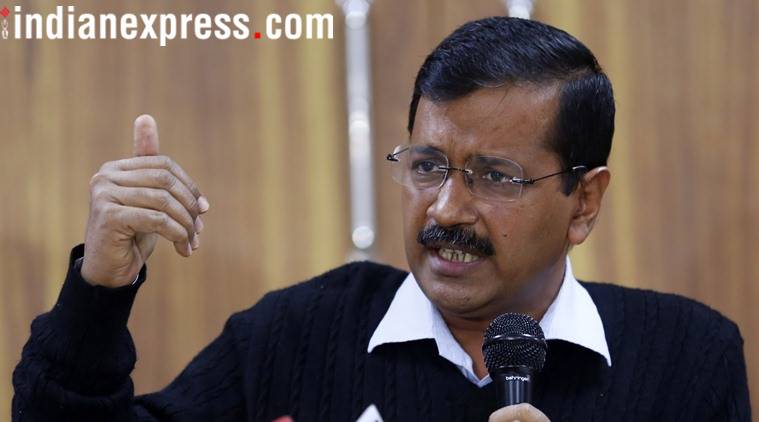Stay updated with the latest - Click here to follow us on Instagram
Court relief to Delhi CM Arvind Kejriwal, eight others in 2012 protest case
Arvind Kejriwal and eight others were booked under rioting and other sections for taking out a procession towards the Prime Minister’s house, where prohibitory orders were issued, on August 26, 2012.
 Arvind Kejriwal was protesting against the coal scam.
Arvind Kejriwal was protesting against the coal scam.
Stating that he has “no doubt” in his mind in upholding fundamental rights of citizens of India, an Additional Chief Metropolitan Magistrate (ACMM) Wednesday discharged Delhi Chief Minister Arvind Kejriwal and eight others, who had been accused of unlawful assembly during a protest in 2012.
Kejriwal, who was then with India Against Corruption (IAC), and eight others were booked under rioting and other sections for taking out a procession towards the Prime Minister’s house, where prohibitory orders were issued, on August 26, 2012. They were protesting against the coal scam.
“Since the prohibition of section 144 was not valid, the accused cannot be said to commit any offence under section 188 IPC (either) and, for that matter, cannot be said to commit all other connected offences with which they are charged. As a result, I discharge all the accused citizens in this case,” ACMM Samar Vishal said Wednesday. Section 144 of the Criminal Procedure Code (CrPC) empowers an executive magistrate to prohibit assembly of more than four people in an area. ACP Bhoop Singh had ordered imposition of CrPC 144 on August 8, 2012, but the court noted that reasons for imposition of the section were not mentioned in the chargesheet.
The court said that it is only in the supplementary chargesheet that police say section 144 was imposed due to festivals and some other IAC demonstrations — but that cannot be valid grounds for imposing it.
In its chargesheet, police said force was used to stop the 300-400 volunteers and a few protesters used flag sticks, injuring a few policemen. It was further argued that imposition of section 144 was “bad in law” as it was not mentioned why it was enforced. The accused had argued that since the order under section 144 was not valid, therefore all other other offences cannot be invoked as they are all connected with the same.
“I am of the view that the order passed by ACP Bhoop Singh was an order without assigning any reason for passing it… Section 144 CrPC is intended to serve public purpose and protect public order. This power vested in the executive is to be invoked after the satisfaction of the authority that there is need for immediate prevention or that speedy remedy is desirable and directions as contemplated are necessary to protect the interest of others or to prevent danger to human life, health or safety or disturbance of public tranquility or a riot or an affray.”
The court also said that the “communication” of the order is also an important factor and there was nothing in the chargesheet, except a mere statement that the demonstrators were warned by police.







